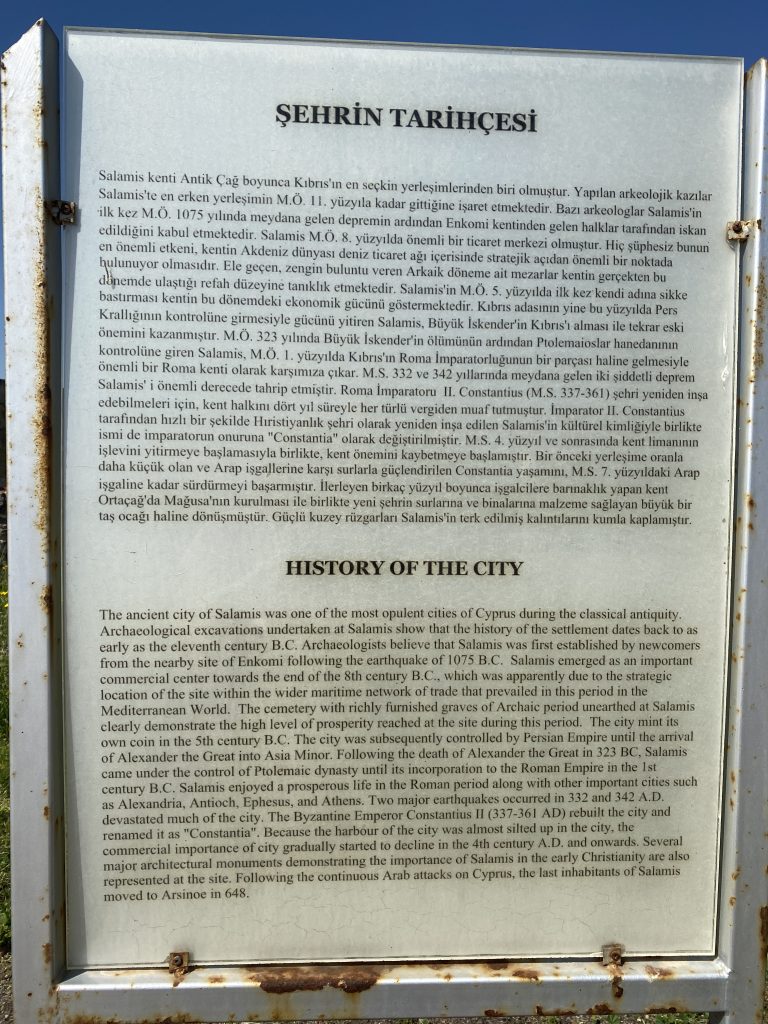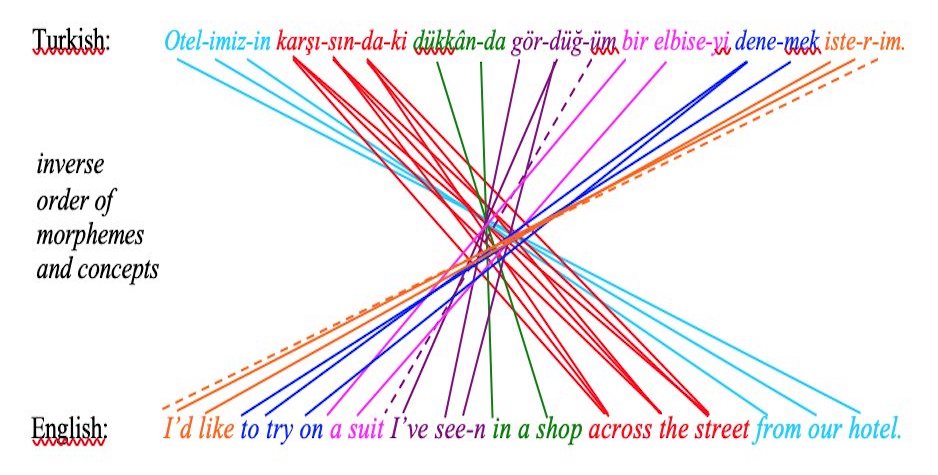Why Turkey Is Now Türkiye: The Story Behind the Name Change

The Art of Living in Turkey contains affiliate links and is a member of the Amazon Services LLC Associates Program. If you make a purchase using one of these Amazon links, I may receive compensation at no extra cost to you. See my Disclaimers for more information.
As someone who has lived in Turkey since 2019 and traveled all around Turkey, I’ve seen firsthand the unique blend of cultures, languages, and histories that make up this fascinating country.
In 2021, while living in Istanbul, I saw an article about how Turkey wanted to officially change its name to Türkiye, which is how the Turks say it.
This simple change reflects a much deeper journey of cultural identity and pride that’s central to Turkey’s story.
In this article, I’ll take you through the origins of the name “Turkey,” the significance behind its modern spelling as “Türkiye,” and the nuances of the Turkish language itself—a language as vibrant and complex as the nation it represents.
Spoiler alert: it has nothing to do with the bird many associate with Thanksgiving.
Turkey ın Turkish: The Story of Turkey’s Name
Perhaps one of the most intriguing geographical queries has to be how Turkey received its name.
Despite popular beliefs, the name ‘Turkey’ has no direct relation to the bird. A fun case of mistaken identity, you might say!
The wild turkey bird, originally from North America, was mistaken for the “turkey fowl” brought to England by the Turkish merchants, leading to the bird being named ‘turkey’.
An interesting cross-continental mix-up indeed.
Turks referred to their own country as “Türkiye” meaning “Land of the Turks”.
When the country began establishing connections with English-speaking nations, the name ‘Turkey’ became commonly used.
But then they recently changed it officially.
A Recent Change in Spelling of the Republic of Turkey’s Name
In 2021, with the help of the United Nations, Turkey officially changed its name from Turkey to Türkiye, with the current President, Recep Tayyip Erdogan, leading the charge for this change.
So why change the spelling? Turkey’s decision to change its name reflects a significant shift in its self-identity and global presence.
This change represents a deliberate effort to reclaim and celebrate its rich cultural heritage and linguistic roots.
Turkiye, with its emphasis on the Turkish language and its unique alphabet, signifies a renewed sense of pride and sovereignty.
The shift also underscores the nation’s desire to be recognized on its own terms, moving away from the conventional English name “Turkey,” which has often been associated with a simplified, westernized image.
By embracing Türkiye, the country is signaling its commitment to preserving its distinctive identity while fostering a deeper connection with its history and traditions.
This change not only bears a historical significance but also serves as a symbol of Türkiye’s determination to assert its unique place in the global community.
An Introduction to the Language of the Turks
History is painted with language. This could perhaps not be truer than with Turkish – the colorful language of Turkey that breathes culture.
Turkish, known as Türkçe in Turkish, is the most widely spoken language in Turkey. It is one of the 14 Turkic languages.
There are many similarities between Mongolian and Korean, which is why many of the Koreans who move to Turkey often have an easier time learning Turkish than their native English-speaking friends.
This gives it a distinct flavor separate from the Indo-European language branch most are familiar with. Essentially, Turkish isn’t similar to the language structure of most Western languages.
Turkish evolved from a series of languages and dialects spoken by the Turks, with the version known today developed largely in the Ottoman Empire era.
While Turkish may be the dominant language, there are a myriad of other languages spoken in Turkey as well.
Other Predominant Languages in Turkey
While more than 70 other languages are spoken in Turkey, the significant languages include Kurdish, Arabic, and Armenian among ethnic minority groups.
Foreign languages such as English and German are also learned and spoken, especially in regard to trade, tourism, and education.
Language, however, is more than a tool for communication – it’s a vessel of culture, tradition, and identity.

The Cultural Impact of Language
Turkish is closely interweaved with the culture, embodying the spirit of the nation, its folklore, literature, music, and art.
It holds the wisdom of the past, traditions, and shared values of its people – narrating the story of Turkey.
The adoption of the language, even with its transitions and transformations, stands as a testament to the shared identity of the people of Turkey.
Dive into Turkey’s soul expressed via its language and you’ll realize – a language is not just about words, but about history, identity, and culture.
This can especially be seen in the transition of words used throughout the history of the language.
There is something awe-inspiringly beautiful about Turkish, a language that not only sings history and culture but also binds people together.
Although it has been difficult to learn, I find something so special in some of their phrases that are simply not captured in English.
The Uniqueness of Turkish
There is a world of difference between learning a language and understanding a language.
Understanding the nuances, peculiarities, and marvels of a language like Turkish takes us a step closer to understanding the complex beauty of Turkey itself.
One thing that makes this language unique is that it is an agglutinative language, which means words are formed by adding affixes to the base word without changing its core meaning.
This structure allows for an incredible amount of specificity and clarity in conveyance, as even a tiny suffix can change an entire word’s meaning.
It also means that for us native English speakers it is quite difficult to learn.

A Century-old Evolution
Turkish has been extensively reformed in the past century, shifting from using the Arabic alphabet to a specialized form of the Latin alphabet in the 20th century when Turkey became a sovereign nation.
While this transformation was a milestone in Turkish history, the essence of the language remained deeply rooted in its traditions.
Enlightening with Expressions
Turkish has some incredibly colorful idioms and expressions that string together vivid imagery and thoughtful insights, providing a unique linguistic flair.
There are some that are similar to the ones I know from America but they also have many that are uniquely their own.
Some Turkish phrases baffle outsiders, yet they are the heart and soul of the language, reflecting Turkish culture and way of life like no other.
To get the feel of this captivating language, let’s explore a few fascinating phrases that paint a picture of Turkish linguistic charm.
“Gözünüz aydın” directly translates to ‘your eye is bright,’ but it’s used to congratulate someone on good news or a happy event.
“Ağzınızın tadı daim olsun” means ‘may the taste of your mouth always be with you.’ It’s a wish for someone to always experience good meals and good times.
“Elin ayağın bir olur” literally translates to ‘your hand and foot become one,’ implying that someone is very busy and their hands and feet are tied up.
A mere translation doesn’t always do justice to these figurative phrases in Turkish, as they’re infused with cultural nuances and historical references that add depth and richness to the language.
One of my favorites is “maydanoz olma” which literally translates to ‘don’t be a parsley’, meaning, don’t stick your nose in everything/mind your own business.
It is especially fun to me because like with most things Turkish, it is very literal. They use parsley in most dishes and thus it carries a specific meaning.
But once, you dive into the vibrant world of Turkish, you’re bound to appreciate its uniqueness.

Influence of the Turkish Language Globally
From its geographical position bridging Europe and Asia, Turkey has been a melting pot of cultures and languages.
As a result, Turkish has left its linguistic fingerprints on various languages around the world, contributing to global literature and common phrases.
Turkish has had an extensive influence on languages such as Arabic, Persian, and various other Balkan and Eurasian languages.
It has lent scores of words to Greek, Albanian, Bulgarian, and Serbo-Croatian. English, too, has borrowed Turkish words like “yogurt” and “kiosk”.

Turkish has greatly influenced literature around the world. It is well-regarded for its poetry and its impressive legacy in oral and written narrative.
World-renowned Turkish authors like Orhan Pamuk and Elif Shafak have woven the beauty of the Turkish language into their well-known books as well.
Turkish Terminologies in Everyday Speech
Interestingly, global languages, including English, have integrated various Turkish words.
Terms like “divan,” “odalisque,” “paşa,” “yurt,” and “tulip” all have Turkish origins.
These adopted terms reflect how Turkish culture and language have seamlessly become part of other countries’ lexicons.
This reinforces the presence and impact of Turkey on a global scale. Indeed, the influence of the Turkish language is far-reaching.
With its rich history, animated expressions, and distinct structure, Turkish has seeped into other cultures and languages.
It has influenced the words we use every day, making literature more profound, and weaving a closer global community.
Such is the power of language, and Turkish is a testament to that.
Frequently Asked Questions about the Republic of Turkey
Why is Turkey named after a bird?
The name Turkey has its roots in history, far detached from the bird we all know. The name of the country Turkey, in Turkish, is Türkiye, meaning ‘land of the Turks’. The bird, on the other hand, got its name from a misunderstanding by early European explorers, who had mistaken it for a bird species from Turkey.
Is it hard to learn?
The complexity or simplicity of a language is subjective and depends on the linguistic background of the learner. For native English speakers, it is considered a level for language. On a personal note, I have never felt more stupid in my whole life and I took AP Calculus and AP Chemistry. 🙃
Does everyone in Turkey speak Turkish?
While Turkish is indeed the official language of Turkey, the country is linguistically diverse. Many people speak languages such as Kurdish, Arabic, and Zazaki alongside Turkish, particularly in the different regions around the country.
How has Turkish influenced other languages?
The influence of the Turkish language is vast and stretches across multiple languages globally. From culinary to literary terminologies, Turkish has left its unique print on languages like English, Arabic, and even Western languages such as French and German.
Final Thoughts about Turkıye
By now you know that Turkey in Turkish is Turkiye. You understand how the values of the Turkish nation are bolstered by this change as well as got a beginner look into the Turkish language.
I am sure that you, along with myself, can appreciate the nations that proudly wear their names.
Actually, this makes me think of my childhood. My parents always called me Kimberly but because of that, my rebellion was to go by Kim.
It wasn’t until I was in my mid-20s that I decided I actually did like my name and had to fight hard to get people to call me Kimberly instead of Kim.
While Turkey wasn’t rebelling against someone else, they were stepping into their identity as the “Land of the Turks” with the help of the United Nations.
As well as the Turkish language has not just shaped the country’s framework but also influenced the global linguistic landscape.
Thus, Türkiye, a member of NATO, offers a much richer portrayal of originality than can be superficially perceived.
Read More:
- Curious about Turkey’s national animal? Read more…
- Planning a move and need to know the cost of living in Istanbul? Read this…
- If you’re a single woman visiting Turkey, read about Turkish men
Turkey Vacation Basics
When I plan a trip these are the websites I use. I hope they help you plan your next adventure as well!
FLIGHTS: I am a huge fan of Skyscanner and WayAway.
VISAS: You can use the free e-visa portal here but for a few extra dollars you can use iVisa and someone else will handle any issues that may come up.
E-SIM: When I traveled to SE Asia I discovered e-sims and I’m never going back. Airalo has been easy and cheap!
TRAVEL INSURANCE: I use TravelInsurance.com for my trips abroad.
CAR RENTAL: I have loved working with Discover Cars when I rent cars in country.
AIRPORT TRANSFERS: I have used these transfers many times and they are always great. If you’d like more options, I also recommend GetTransfers.com as they allow you to compare companies.
ACCOMMODATION: Find the best Turkey hotel deals on Booking.com.
CITY TOURS & DAY TRIPS: You can browse GetYourGuide’s website to find just the tour you’re looking for! We also recommend the MegaPass for major cities.
